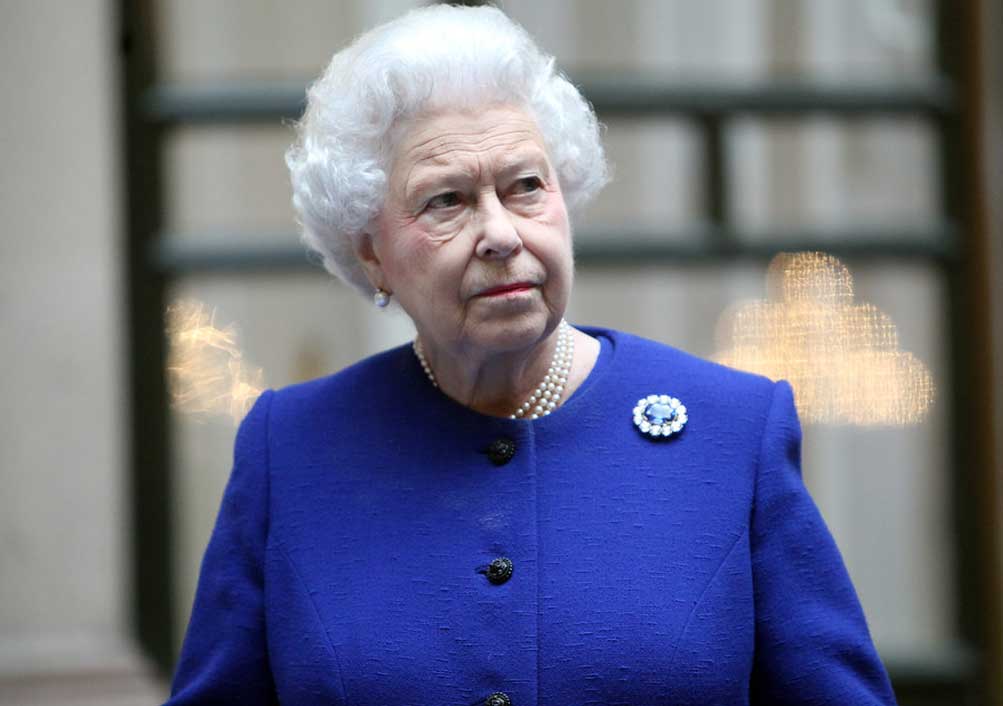Queen secretly lobbied Scottish ministers for climate law exemption

The Guardian
July 29, 2021: The Queen’s lawyers secretly lobbied Scottish ministers to change a draft law to exempt her private land from a major initiative to cut carbon emissions, documents reveal.
The exemption means the Queen, one of the largest landowners in Scotland, is the only person in the country not required to facilitate the construction of pipelines to heat buildings using renewable energy.
Her lawyers secured the dispensation from Scotland’s government five months ago by exploiting an obscure parliamentary procedure known as Queen’s consent, which gives the monarch advance sight of legislation.
The arcane parliamentary mechanism has been borrowed from Westminster, where it has existed as a custom since the 1700s.
In a series of reports into Queen’s consent in recent months, the Guardian revealed how the Queen repeatedly used her privileged access to draft laws to lobby ministers to change UK legislation to benefit her private interests or reflect her opinions between the late 1960s and the 1980s.
The new documents, uncovered by Lily Humphreys, a researcher for the Scottish Liberal Democrats using freedom of information laws, disclose how the monarch used her special access to Scottish legislation to intervene in the parliamentary process as recently as February.
The documents also suggest Nicola Sturgeon’s government failed to disclose the monarch’s lobbying this year when a Scottish politician used a parliamentary debate to query why the Queen was securing an exemption from the green energy bill.
The move appears at odds with the royal family’s public commitment to tackling the climate crisis, with Prince William recently joining his father, Charles, in campaigning to cut emissions and protect the planet.
Sturgeon’s government heralded the bill as a key piece of legislation to combat the climate emergency. It said the law, known as the heat networks bill, would help cut emissions, reduce fuel poverty and create green jobs.
The legislation enabled the construction of pipelines to heat clusters of homes and businesses using renewable energy, rather than from separate fossil fuel boilers.
On 12 January, John Somers, Sturgeon’s principal private secretary, wrote to Sir Edward Young, the Queen’s most senior aide, asking for her consent to the heat networks bill. In his letter, Somers said it would allow companies and public authorities to compulsorily buy land from landowners.
On 3 February, officials working for Paul Wheelhouse, the then energy minister, recorded that the Queen’s lawyers raised concerns about the bill. They also recorded he had agreed to alter the bill, noting the “minister agreed to proposed amendment that would addressed [sic] concerns from Queen’s solicitors”. This had been done in relation to the Queen’s consent process.
On 17 February, a courtier told the Scottish government the Queen had given her consent to allow the bill to be passed.
Five days later, when MSPs debated the bill, Wheelhouse put forward an amendment that applied only to land privately owned by the Queen. It specifically prevents companies and public authorities from compelling the Queen to sell pieces of her land to enable the green energy pipelines to be built.
Buckingham Palace says Queen’s consent, a process requiring ministers to notify lawyers when a proposed bill might affect her public powers or private interests, is a “purely formal” part of the parliamentary process.
However, there are increasing examples where the Queen has taken advantage of her consent privileges to require changes before she formally consents to the law proceeding through parliament. That appears to have occurred on this occasion in Scotland, where the procedure – known as crown consent – operates in the same way.
During the debate over the parliamentary bill, Andy Wightman, then an independent MSP, objected to the amendment, arguing it was wrong to single out the Queen for preferential treatment.
Wheelhouse responded that the amendment was “required to ensure the smooth passage of the bill”. However, he did not disclose that the Queen’s lawyers had lobbied for the change. The amendment was passed with Wightman and a handful of other MSPs opposing it.
After being informed about the new documents, Wightman said he was “shocked to discover that the amendment was put in place in order to secure Queen’s consent. That should have been stated in the debate.
Disclaimer: This article was originally published by the Guardian.
Sign up for our weekly newsletter to stay up to date on our product, events featured blog, special offer and all of the exciting things that take place here at Legitquest.




Add a Comment